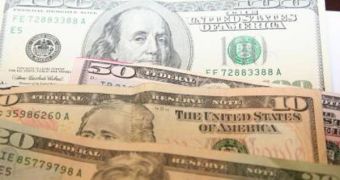Although it may seem unbelievable, the largest and most comprehensive study of money in the United States to date has revealed that more than 90 percent of all bills in circulation today have trace amounts of cocaine on them. Large cities such as Baltimore, New York, Boston, and Detroit are particularly affected, but the situation is the worst in Washington DC. Here, some 95 percent of all analyzed bills contain traces of the dangerous drug. The finds were presented yesterday, at the 238th National Meeting of the American Chemical Society (ACS).
“To my surprise, we're finding more and more cocaine in banknotes. I'm not sure why we've seen this apparent increase, but it could be related to the economic downturn, with stressed people turning to cocaine,” University of Massachusetts in Dartmouth (UMD) expert Yuegang Zuo, PhD, who is the leader of the new study, explains. Bills from more than 30 cities in five countries were analyzed for the investigation, and the experts found traces of contaminants on all of them, in various concentrations.
The United States, Canada, Brazil, China, and Japan were all visited during the study. In Japan and China, the researchers found the cleanest bills, with only 12 to 20 percent of them showing signs of cocaine. On the other hand, the US and Canada showed the largest concentrations, averaging at around 85 to 90 percent. Zuo reveals that the amount of cocaine in the US bills seems to have increased by about 20 percent since two years ago, when the latest such study was conducted. Only 67 percent of US bills contained traces of cocaine according to the other investigation.
“For the most part, you can't get high by sniffing a regular banknote, unless it was used directly in drug uptake or during a drug exchange. It also won't affect your health and is unlikely [to] interfere with blood and urine tests used for drug detection,” Zuo reveals, at the end of the UMD-funded study. The expert also says that citizens should have no legal concerns related to handling the contaminated bills, and also that there are no ways of avoiding them. Even bills that are originally clean get contaminated inside money-counters and in ATM machines.

 14 DAY TRIAL //
14 DAY TRIAL //